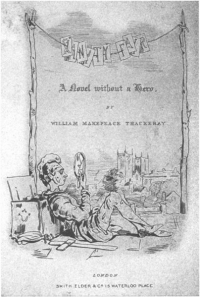
This is a response to a query from a Southampton colleague who received an unsolicited invitation from an unknown individual to contribute a chapter to an "Open Access" book (author pays) on the basis of a paper he had deposited in the
ECS Southampton Institutional Repository (IR) -- and possibly on the basis of its
download statistics:
The colleague asked:
(1) Is the book chapter that [identity deleted] is soliciting an example of Open Access?
(2) Are download counts legitimate metrics for (2a) CVs, (2b) website statistics, (2c) departmental/institutional repository (IR) statistics?
(3) Can download statistics be abused?
(4) Should institutional authors be able to "opt out" of (4a) depositing their paper in their IR and/or (4b) having their download statistics displayed?
(1) Yes, Open Access (OA)
books are instances of OA just as OA articles are. The big difference is that all peer-reviewed journal/conference articles, without exception, are written exclusively for research usage and impact, not for royalty income, whereas this is not true of all or even most books. Articles are all author
give-aways, but most books are not. So articles are OA's primary target; books are optional and many will no doubt follow suit after systematic OA-provision for research articles has taken firm root globally. (Also important: article deposit in the IR can be mandated by researchers' employers and funders, as
Southampton ECS and
RCUK have done, but book deposit certainly cannot -- and should not -- be mandated.)
(2) Yes, download metrics, alongside citation metrics and other new metric performance indicators can and should be listed in CVs, website stats and IR stats. In and of themselves they do not mean much, as absolute numbers, but in an increasingly OA world, where they can be ranked and compared in a global context, they are potentially useful aids to navigation, evaluation, prediction and other forms of
assesment and analysis. (We have published a study that shows there is a good-sized positive correlation between earlier download counts and later citation counts: Brody, T., Harnad, S. and Carr, L. (2006)
Earlier Web Usage Statistics as Predictors of Later Citation Impact.
Journal of the American Association for Information Science and Technology (JASIST) 57(8) pp. 1060-1072.)
(3) Yes, download statistics can be -- and will be --
abused, as many other online innovations (like email, discussion lists, blogs, search engines, etc.) can be abused by spammers and other motivated mischief-makers or self-promoters. But it is also true that those abuses can and will breed counter-abuse mechanisms. And in the case of academic download metrics inflation, there will be obvious, powerful ways to counteract and deter it if/when it begins to emerge: Anomalous download patterns (e.g., self-hits, co-author IP hits, robotic hits, lack of correlation with citations, etc.) can be detected, named and shamed. (It is easier for a commercial spammer to abuse metrics and get away with it than for an academic with a career that stands at risk once discovered!)
(4) No, researchers should definitely not be able to "opt out" of a
deposit mandate: That would go against both the letter and spirit of a growing worldwide movement among researchers, their institutions and their funders to
mandate OA self-archiving for the sake of its substantial benefits to research
usage and impact. There is always the option of depositing a paper as
Closed Access rather than Open Access, but I think a researcher would be shooting himself in the foot if he chose to do that on account of worries about the abuse of download statistics: It would indeed reduce the download counts, usage and citations of that researcher's work, but it would not accomplish much else. (On the question of opting out of the
display of download (and other) metrics, I have nothing objective to add: It is technically possible to opt out of displaying metrics, and if there is enough of a demand for it, it should be made a feature of IRs; but it seems to me that it will only bring disadvantages and handicaps to those who choose to opt out of displaying their metrics, not only depriving them of data to guide potential users and evaluators of their work, but giving the impression that they have something to hide.)
I would also add that the invitation to contribute a book chapter by [identity deleted] might possibly be a scam along the lines of the
bogus conference scams we have heard much about. The public availability of metadata, papers and metrics will of course breed such "invitations" too, but one must use one's judgment about which of them are eminently worth ignoring.
Stevan Harnad
American Scientist Open Access Forum



